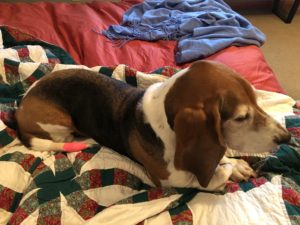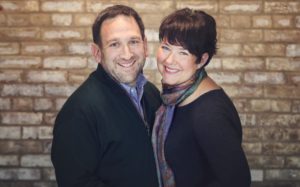Since we’ve been in quarantine we’ve started to exercise at home. We walk a lot — so much that Doc the Basset Hound frequently stops, lies down on the sidewalk and glares at us. We’ve also been using the Peloton app. We had previously thought it was just for biking but we discovered that you can do cardio, body-weight strength classes, yoga and even meditation (though we haven’t advanced past five minutes for those yet).
In the middle of one recent class, our instructor, with an eye towards motivation, exclaimed something like: “Make the most of this moment because you can’t get it back — time is NOT a renewable resource.” That throw away comment struck us both in the moment and we’ve returned to it often since.
Time is not a renewable resource. So simple and yet kinda profound. Upon reflection, we both think that until Cassie got sick we had often treated time like it was renewable. Sure we tried to be intentional (and were getting more so as we got older) but often days and weeks would just fly by without our giving real thought to what we were doing and why. We would often over schedule ourselves and become more focused on getting everything done than enjoying what we were doing. Occasionally we would realize how fast we were moving or how busy we were and try to re-calibrate. Mostly though we just kept going because we just assumed we had enough time to do everything we wanted. If we were too busy this week we’d do it next week. If we didn’t get to it this year there was always next year.
Then Cassie was diagnosed with metastatic breast cancer. While it varies greatly by person, the five year survival rate is just 22%. Less than a quarter of people with this disease will live beyond five years post diagnosis. Even with all of our doctor’s caveats, that statistic slapped us in the face. It also changed how we started thinking about time — it really is precious or in the words of our Peloton instructor it’s nonrenewable. We identified a set of personal “buckets” to help us focus and prioritize our time (for more on what those are, see our 3/21/19 blog post) and we are making different choices than we were before. Our relationship with time has changed.
And now along comes Coronavirus and once again life as we (and everybody) know it has changed. One day bleeds into the other. Weekends mean less. Time feels different. And Cassie in particular can’t help thinking about the fact that she only has limited time left and some (much?) of that is likely going to be spent in isolation not doing the things we had planned. Not seeing the people we love. Not taking advantage of the energy she has now but won’t have later. What if this is the last time we ever get to come to Napa (our happy place) and we just spent most of it indoors? What if we don’t get to see our friends and families for months? What if Cassie begins to decline next year and this, her last “good” year, was largely spent in isolation? These are impossible questions with no real answers but this week they’ve resulted in a lot of tears and a lot more thinking about how we maximize our time no matter the circumstance. Can we stop thinking about this as lost time and somehow re-frame it as found time for the two of us as a couple? That still feels hard but probably worth trying.
Oh yeah and we are also setting a strict daily step limit for Doc so he stops glaring at us. How he uses his time matters too.
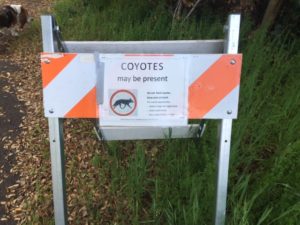

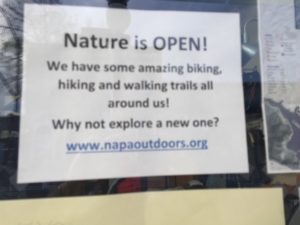
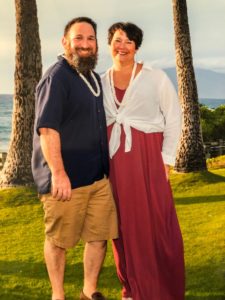 It was a wonderful trip but it also got us thinking about vacationing with cancer. Like everything else, it’s different now. The biggest change is that we used to be able to go on a long vacation and leave life behind. Unplug. Forget about work or our to do lists. Recharge. It’s what made vacations so special and we were good at it. Despite our mutual Type A personalities we had both become excellent vacationers adept at letting go, shutting off our email and leaving life at home.
It was a wonderful trip but it also got us thinking about vacationing with cancer. Like everything else, it’s different now. The biggest change is that we used to be able to go on a long vacation and leave life behind. Unplug. Forget about work or our to do lists. Recharge. It’s what made vacations so special and we were good at it. Despite our mutual Type A personalities we had both become excellent vacationers adept at letting go, shutting off our email and leaving life at home. 